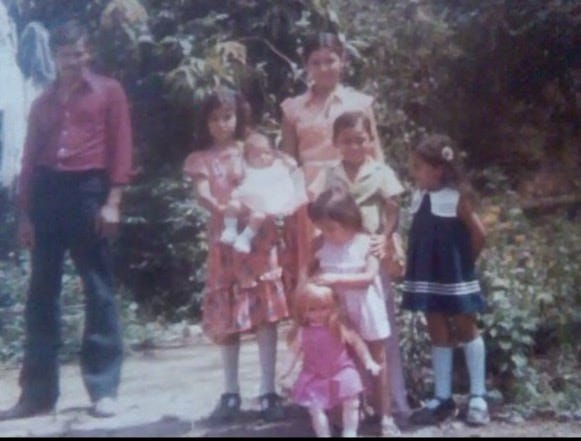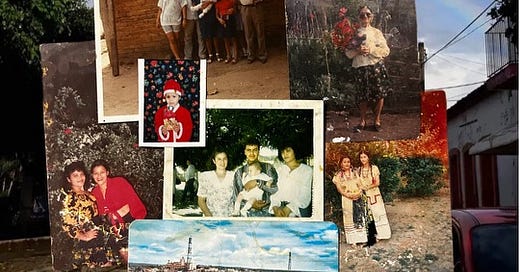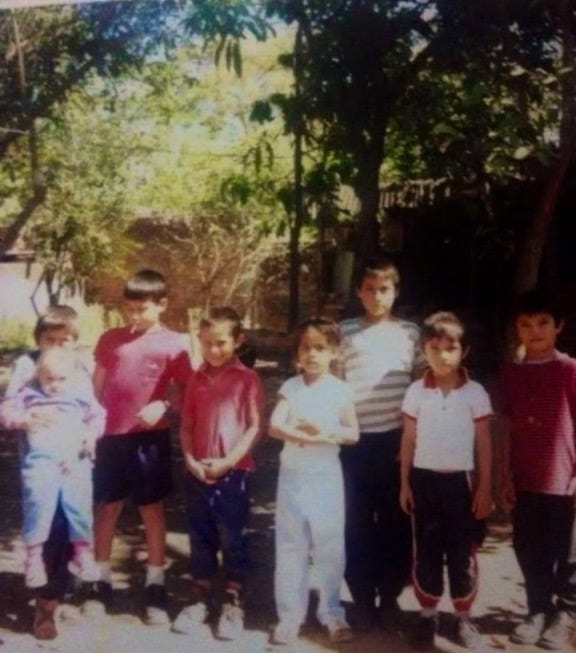The Ones We Left Behind
"We cannot forget that lives have been altered, years have passed, faces have changed."
My crossing of the border remains locked away in some part of the brain that relinquishes memories before the age of three. I can only imagine the voyages my family took through their stories. I can only bear witness to the way these invisible lines and cruel government policies have affected their quality of life. How they can only live there again through the things family members bring from México. Aged cheeses, shrimp from a river they once fished in, or the pulp of passion fruit that was harvested from my abuelito’s garden that my tío Salo brought with him when he visited several years ago.
Lives on both sides of the border are altered from the crossing of our people. But, like the roots from a tree we extend ourselves over these invisible lines tapping in to one another to survive, to continue to nourish ourselves through our relationships with those we leave behind. This is how my family has survived. This hope that voices over telephone lines will one day be sitting across from us. Aged cheese and the pulp of a fruit that has been grown in our homeland are the glimmers that have assured us that although we have left, that Pueblo and its richness remains. But we cannot forget that lives have been altered, years have passed, faces have changed. We cannot forget those we have left behind even as those are the people you hear less about. There are news articles being written about mothers and their children that cross. What about the children left behind? What of them and their lives?
There are news articles being written about mothers and their children that cross. What about the children left behind? What of them and their lives?
A few years after my mother left La Villa Purificación, my mother’s sisters crossed the border together. One of them left two young children behind in Guadalajara Jalisco. I think about them when xenophobes shame parents for crossing with their kids. My cousins were not better off without their mother. My tia knew the dangers she would face crossing and could not bear to bring them along for that. I can only imagine how she had to come to that decision and what it felt like to leave her babies without knowing for certain if she’d get to the other side to call them or send them a letter. Their resentment and troubles are a direct result of her choice to leave without them as well as the guilt and shame she has lived with.
My cousin was often bullied by the pueblo’s kids. They would tell him he was abandoned by his mother because she didn’t want him. I imagine that this unfathomable pain he carried resulted in his current battle with drug addiction. They were never reunited because they never wanted to come to the US, not even to visit. When my cousin got in a motorcycle accident that left him in the hospital, we went to visit my tía for emotional support and I remember sitting at the edge of her bed listening to her sobbing and blaming herself for leaving them. The guilt was so heavy in her heart that she started telling everyone that she would go back to México, even if that meant leaving the children she had here behind.
What was left of their mother, but old pictures and her voice through a telephone? What remained of her memory, her warmth, her smell? When did it begin to fade and when did their sadness turn to rage to resentment? The government separates babies from their mothers and we read about their cruel inhumanity and we’re angry and we protest and we demand that they stop. The separation between my tía and her children is a quieter act of inhumanity. It’s easier to blame her for it and if she had crossed the desert night with them they’d blame her. She blames herself too.

When trees go so long without another tree root system their chances of survival diminish significantly. I imagine this is what happened to my cousins growing up without their mother all of those years, trying to hang onto severed memories of a time before their mother crossed. For them, there were no souvenirs, no pieces of their mother she could send back that could settle the ache in their hearts. Their lives simply went on without her as did hers, with dire and heartbreaking consequences.
Propina
Alongside her powerful essay, Christián offers the poem “Reservoir” from Yesika Salgado’s collection, Hermosa:
We’ll see you (with even more poetry) next week.








What a touching piece. We as immigrants are always lingering through the parallels. What if we had never left? What could’ve been of all the people we left behind? This kind of pain is one that stays for life.